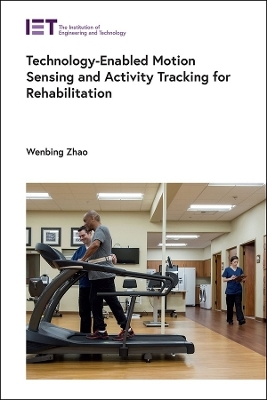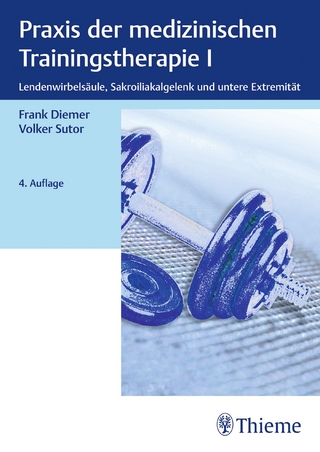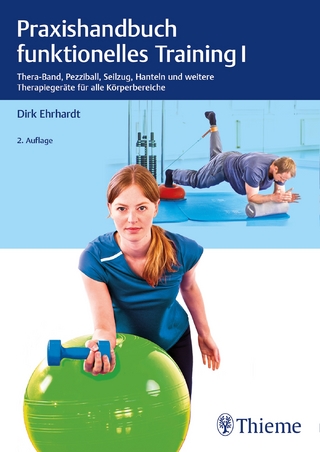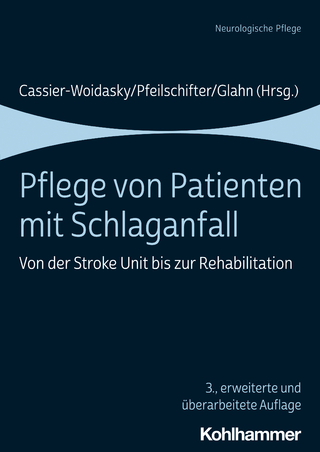
Technology-Enabled Motion Sensing and Activity Tracking for Rehabilitation
Institution of Engineering and Technology (Verlag)
978-1-83953-410-2 (ISBN)
- Titel nicht im Sortiment
- Artikel merken
Documenting how technology has been increasingly facilitating rehabilitation both for physical and mental health, this book focuses on sensing and measurement technologies for rehabilitation applications.
The author introduces various motion sensing technologies, such as inertial measurement units, pressure sensing, e-Textile, and vision-based motion sensing and discusses the applications in at-home rehabilitation scenarios. Common human motion recognition algorithms, ranging from simple single-parameter determination, such as the determination of range of motion in terms of angles, to sophisticated rule-based and machine-learning based activity recognition algorithms are explored, laying the foundation for adopting and understanding these technologies in rehabilitation.
Interactive games illustrate how technology can help rehabilitation beyond assessment, invigorating the rehabilitation programs, and engaging patients in their own recovery journey via computer screens or virtual reality interfaces to provide real-time feedback on the quality and quantity of the physical activity performed. This serious game technology enables more accurate and consistent assessment of the quality of rehabilitation exercises done by the patients. The author looks at many patient populations (such as recovery from stroke, COPD, MS, or surgery) and many rehabilitation scenarios (such as upper extremity, lower extremity, posture, hand, gait and activities of daily living).
Professionals and researchers in the field of rehabilitation technology engineering and related areas will find this book a valuable tool in navigating multidisciplinary work on healthcare technology and health science.
Wenbing Zhao is a professor at the Department of Electrical Engineering and Computer Science, Cleveland State University, USA. He has over 200 peer-reviewed publications and has delivered 10 keynotes at international conferences. He is an associate editor for IEEE Access, MDPI Computers, and PeerJ Computer Science, and a member of the editorial board of several international journals, including Applied System Innovation, Internal Journal of Parallel, Emergent and Distributed Systems, and International Journal of Distributed Systems and Technologies. He is an IEEE senior member.
Introduction
Part I: Motion sensing technologies
Chapter 1: Inertial measurement units
Chapter 2: Force and pressure sensing
Chapter 3: E-Textile-based sensing
Chapter 4: Muscle activity sensing with myography
Chapter 5: Vision-based motion sensing
Chapter 6: Instrumented gloves
Part II: Human motion recognition and exergames
Chapter 7: Measurement of basic parameters
Chapter 8: Machine-learning-based activity recognition
Chapter 9: Rule-based activity recognition
Chapter 10: Exergames
Part III: Technology-facilitated rehabilitation
Chapter 11: Technology-facilitated physical rehabilitation
Chapter 12: Technology-facilitated occupational rehabilitation
Chapter 13: Technology-facilitated speech rehabilitation
Chapter 14: Technology-facilitated pulmonary rehabilitation
Chapter 15: Technology-facilitated cognitive rehabilitation
Chapter 16: Technology-facilitated mental health rehabilitation
| Erscheinungsdatum | 16.05.2023 |
|---|---|
| Reihe/Serie | Healthcare Technologies |
| Verlagsort | Stevenage |
| Sprache | englisch |
| Maße | 156 x 234 mm |
| Themenwelt | Medizin / Pharmazie ► Physiotherapie / Ergotherapie ► Rehabilitation |
| Technik ► Elektrotechnik / Energietechnik | |
| ISBN-10 | 1-83953-410-9 / 1839534109 |
| ISBN-13 | 978-1-83953-410-2 / 9781839534102 |
| Zustand | Neuware |
| Informationen gemäß Produktsicherheitsverordnung (GPSR) | |
| Haben Sie eine Frage zum Produkt? |
aus dem Bereich


